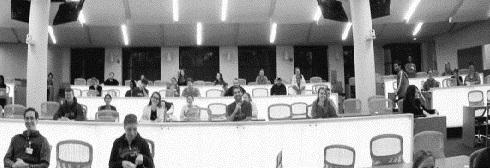
Get the latest articles delivered directly to your inbox!
Our Contributors
Class of 2022
Kyle Duke
Austin Foster
Charlotte Leblang
Ross Lordo
Class of 2021
Dory Askins
Connor Brunson
Keiko Cooley
Mason Jackson
Class of 2020
Megan Angermayer
Carrie Bailes
Leanne Brechtel
Hope Conrad
Alexis del Vecchio
Brantley Dick
Scott Farley
Irina Geiculescu
Alex Hartman
Zegilor Laney
Julia Moss
Josh Schammel
Raychel Simpson
Teodora Stoikov
Anna Tarasidis
Class of 2019
Michael Alexander
Caitlin Li
Ben Snyder
Class of 2018
Alyssa Adkins
Tee Griscom
Stephen Hudson
Eleasa Hulon
Hannah Kline
Andrew Lee
Noah Smith
Crystal Sosa
Jeremiah White
Jessica Williams
Class of 2017
Carly Atwood
Laura Cook
Ben DeMarco
Rachel Nelson
Megan Epperson
Rachel Heidt
Tori Seigler
Class of 2016
Shea Ray
Matt Eisenstat
Eric Fulmer
Geevan George
Maglin Halsey
Jennifer Reinovsky
Kyle Townsend
Join USCSOMG students on their journeys to becoming exceptional physician leaders.

Being Just a Medical Student
“I’m just a medical student.” I say it often, especially in front of patients, and pretty much every time I do, some bystander or the patient corrects me, “Not just a medical student.” And I guess the phrasing is a little needlessly self-deprecating, but I say it mostly to announce my lack of expertise, of which I am acutely aware.
I most often encounter patients when I volunteer at the free clinic, where my novice status is constantly revealing itself. The blood pressure machine acts up and I have to find a nurse to help fix it. A patient asks me to make a note about a medication and I can’t even find it on their chart because it’s listed by a different name. One time I just needed a pen and didn’t know where to find it, and even though it was in no way medically related, it felt like just another example of my inexperience. But I’ve become very comfortable with this state of affairs, and in a way it’s exciting to be so unfamiliar with things. Each time I ask for help, I learn something.
A couple weeks ago, a patient came to the clinic with her spouse, and I introduced myself as I usually do, “Hello, my name’s Caitlin. I’m a medical student, so I’ll just be taking your vitals today.” After the usual measuring of blood pressure, temperature, and blood sugar and asking why they came to the clinic that day, the patient’s spouse asked if he could ask me a question. I said of course. He began with a question, which I don’t remember, because it quickly morphed into an expression of his frustration with the ineffectiveness of his spouse’s treatment. I nodded along and punctuated his statement with acknowledgments of his feelings like “I can see how that might be concerning.” I summarized his frustrations and fears back to him at the end, and stated that I would write it in the chart so that her provider would speak with them about it. They said they’d appreciate that and appeared not only completely mollified, but grateful.
Their reaction confused me at the time. I did not, indeed could not, increase their medication or change their treatment plan in any way, so why were they so relieved? I was glad I had helped, but I still felt a nagging doubt that I had somehow misrepresented myself and projected more power and influence than I really had as “just” a medical student. I thought about it some more after going home, and began to feel a little relieved myself. Maybe the reason they were satisfied with my actions (or lack thereof) was they had low expectations of me to begin with as “just” a medical student.
Which is a line of thought that brings its own anxieties. For now, I am just a medical student, but that inherently means eventually I’ll become a medical doctor, and this patient’s expectations of me will be much higher. I will have to not only sympathize with their frustrations, but also work with them to fix those frustrations. But each thing in its own time. I imagine it’s a good thing for the patient as well as for me to have “just” a medical student as part of their care team: a slightly clumsy, painfully vulnerable, compassionate ear, whose job—for now—is just to listen well.
I was born and raised in Spartanburg, South Carolina and attended Vanderbilt University for my undergraduate studies. I was heavily involved in Vanderbilt’s fencing club and musical volunteering at the Vanderbilt hospital before graduating in 2015 with a degree in biomedical engineering. I want to become a physician to help people pursue happiness in health and am honored and excited to study medicine at USC School of Medicine Greenville.
Copyright 2021 USC School of Medicine Greenville


